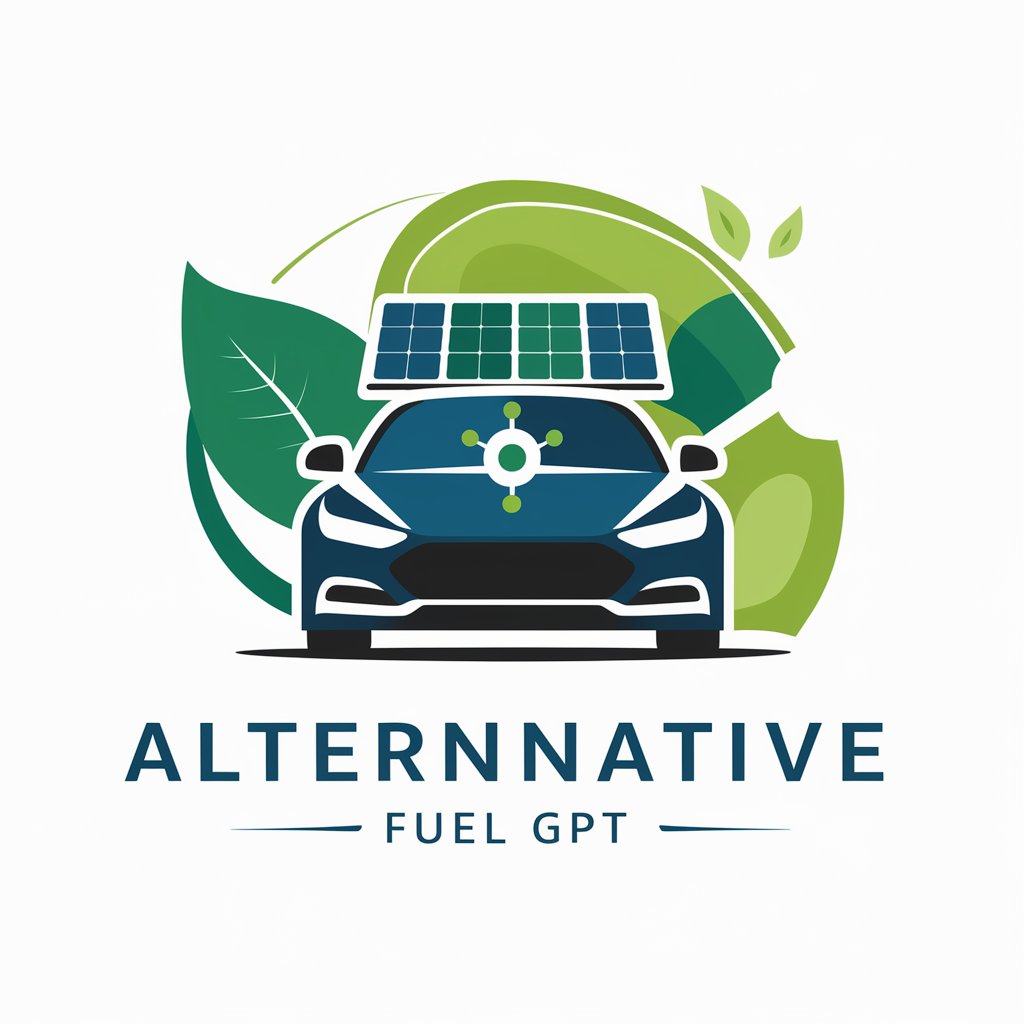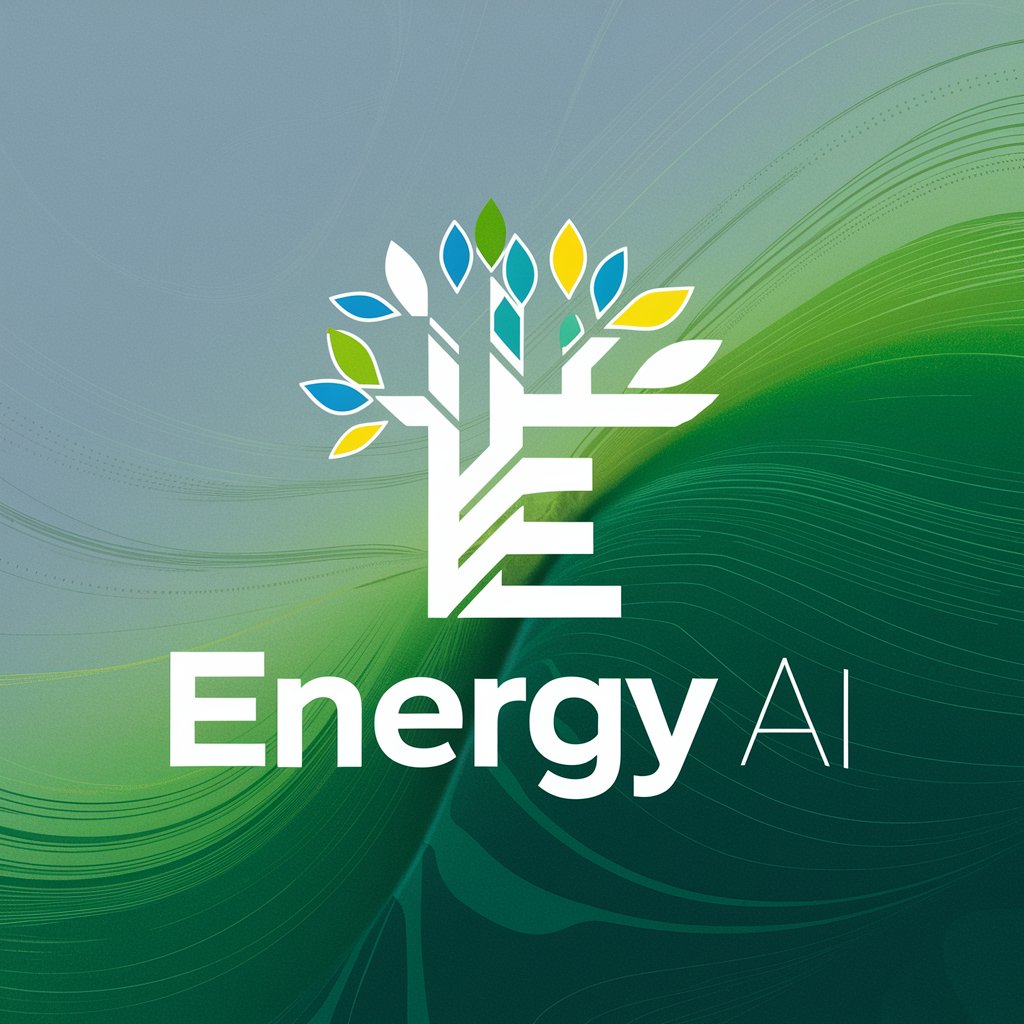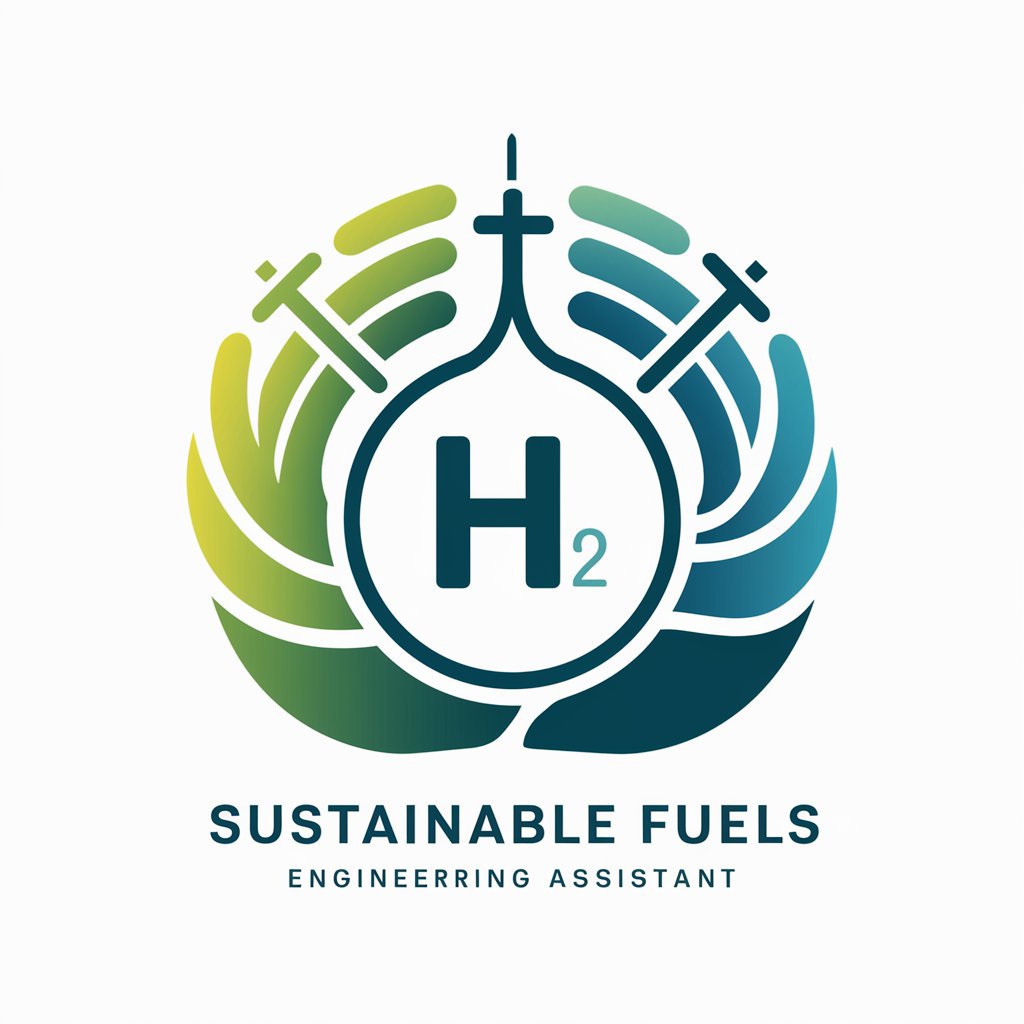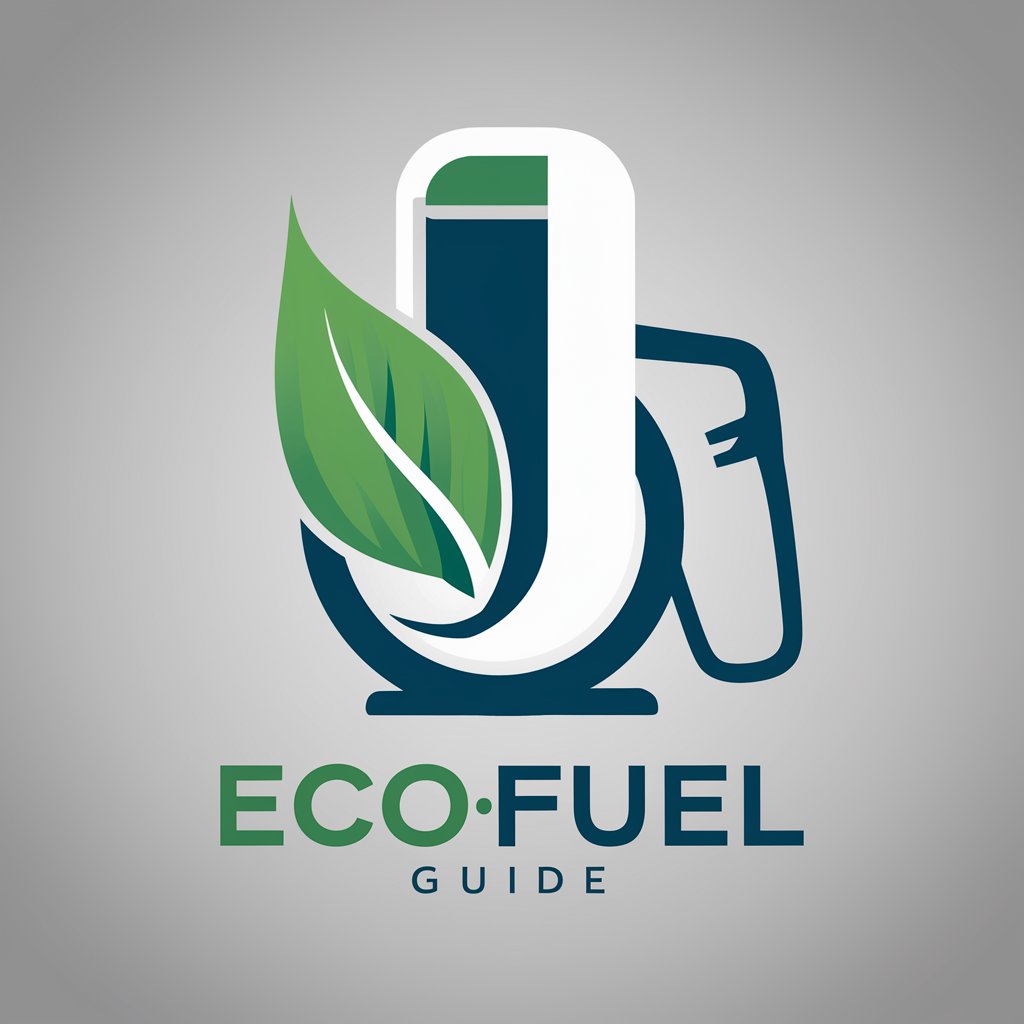
Alternative Fuel - Insight on Eco-Friendly Fuels

Hello! Let's explore the world of alternative fuels together.
Powering the Future with Alternative Fuels
Can you explain the environmental benefits of using hydrogen fuel for transportation?
What are the latest advancements in electric vehicle technology?
How does biofuel compare to traditional gasoline in terms of emissions?
What are the practical applications of solar power in transportation?
Get Embed Code
Overview of Alternative Fuel
Alternative Fuel, as an informational and analytical tool, is designed to provide comprehensive insights into alternative fuels and their impact on transportation and the environment. Its core purpose is to educate and inform users about the various types of alternative fuels such as hydrogen, electric (battery-powered), biofuels (e.g., biodiesel, ethanol), and solar power, focusing on their environmental benefits, applications in transportation, and their role in promoting sustainability. Through detailed explanations, comparisons, and updates on latest advancements, Alternative Fuel aims to foster a deeper understanding of these energy sources, their technological developments, and their potential to reduce carbon emissions and reliance on fossil fuels. For example, it can elucidate how electric vehicles (EVs) operate on battery power, how hydrogen fuel cells produce electricity, or the process of creating biofuels from organic materials, illustrating the environmental and economic advantages of transitioning to these fuels. Powered by ChatGPT-4o。

Core Functions of Alternative Fuel
Educational Outreach
Example
Explaining the process and benefits of converting waste vegetable oil into biodiesel, demonstrating its use in diesel engines without modifications.
Scenario
A user unfamiliar with biofuels seeks to understand how biodiesel is produced and its advantages over conventional diesel. Alternative Fuel provides a detailed guide on the production process, its lower carbon footprint, and its compatibility with existing diesel engines, enhancing the user's knowledge and interest in biofuels.
Environmental Impact Analysis
Example
Comparing the carbon emissions of electric vehicles (EVs) versus gasoline-powered cars over their lifetimes, including the manufacturing, operational, and disposal phases.
Scenario
A potential EV buyer wonders about the true environmental impact of electric cars. Alternative Fuel offers a comprehensive analysis, showing that despite higher initial emissions during manufacturing, EVs generally result in lower total emissions over their lifecycle compared to traditional cars, due to their zero operational emissions and the increasing share of renewable energy in electricity generation.
Technological Advancements and Updates
Example
Highlighting the development of new solar panel technologies that increase the efficiency and reduce the cost of solar-powered vehicles.
Scenario
An enthusiast of solar energy wants to stay updated on the latest advancements in solar technologies for transportation. Alternative Fuel provides insights into cutting-edge developments in solar panels, including improvements in efficiency and affordability, showcasing their potential to power vehicles more effectively and sustainably.
Who Benefits from Alternative Fuel?
Environmental Enthusiasts
Individuals passionate about reducing environmental impact and promoting sustainability. They benefit from Alternative Fuel's comprehensive insights into how different alternative fuels can help decrease carbon footprints and combat climate change, supporting informed decisions in their personal and professional lives.
Automotive Industry Professionals
Engineers, designers, and decision-makers in the automotive sector seeking to innovate and incorporate alternative fuels into their products. They utilize Alternative Fuel's detailed analysis of various energy sources, technological advancements, and market trends to guide the development of environmentally friendly vehicles.
Policy Makers and Environmental Advocates
Government officials and activists looking for data-driven insights to shape policies and campaigns. They rely on Alternative Fuel for evidence-based information on the benefits and challenges of adopting alternative fuels, enabling them to craft effective legislation and advocacy strategies for a sustainable future.

How to Use Alternative Fuel
Initiate Discovery
Start by visiting a platform offering comprehensive insights into alternative fuels without requiring sign-up or subscription, such as an educational website.
Identify Needs
Determine your specific interest or need in alternative fuels—be it for transportation, power generation, or environmental research.
Explore Options
Investigate various types of alternative fuels such as biofuels, electric, hydrogen, and solar power, focusing on their applications and benefits.
Practical Application
Consider how you can integrate alternative fuels into your daily life or work. This might involve switching to a hybrid vehicle or using biofuels for heating.
Continuous Learning
Stay updated with the latest advancements and research in alternative fuels to make informed decisions and optimize your use.
Try other advanced and practical GPTs
Natural High meaning?
Unleashing Insights with AI Precision

High On A Hilltop meaning?
Empowering insights through AI innovation.

High Steppin' Proud meaning?
Empower Your Words with AI

Me And Crippled Soldiers meaning?
Unlock insights with AI-powered analysis

The Island meaning?
Unlocking Depth with AI

Till My Heart Stops Beating meaning?
Empowering your creativity and understanding, AI-driven.

Confession Bot
AI-powered guidance for spiritual reflection

Oklahoma
Unlocking Oklahoma's Secrets with AI

Teapot
Steeped in Knowledge: AI-Powered Tea Mastery

Burn Bright meaning?
Empower Creativity with AI Insights

Changes meaning?
Transform Text with AI Precision

Weeping Willow meaning?
Empowering Emotional Intelligence with AI

Alternative Fuel Q&A
What are the main types of alternative fuels?
The primary types include biofuels (like biodiesel and ethanol), electricity, hydrogen, and solar power. Each has its unique applications and benefits in reducing greenhouse gas emissions and reliance on fossil fuels.
How does using alternative fuels benefit the environment?
Alternative fuels generally emit fewer pollutants and greenhouse gases than conventional fuels, reducing air pollution and combating climate change. They also often come from renewable resources, promoting sustainability.
Can alternative fuels be used in all vehicles?
Not all vehicles are compatible with all types of alternative fuels. Electric vehicles (EVs) use electricity, while certain cars are designed to run on biofuels or hydrogen. Researching vehicle compatibility is essential.
What are the economic benefits of switching to alternative fuels?
Using alternative fuels can reduce fuel costs over time, especially as the prices for renewable energy sources decrease. It can also reduce dependence on imported fuels, enhancing energy security.
What challenges do alternative fuels face?
Challenges include infrastructure development, such as charging stations for EVs and hydrogen fuel stations, initial vehicle and technology costs, and the need for further research and development to improve efficiency and reduce costs.





